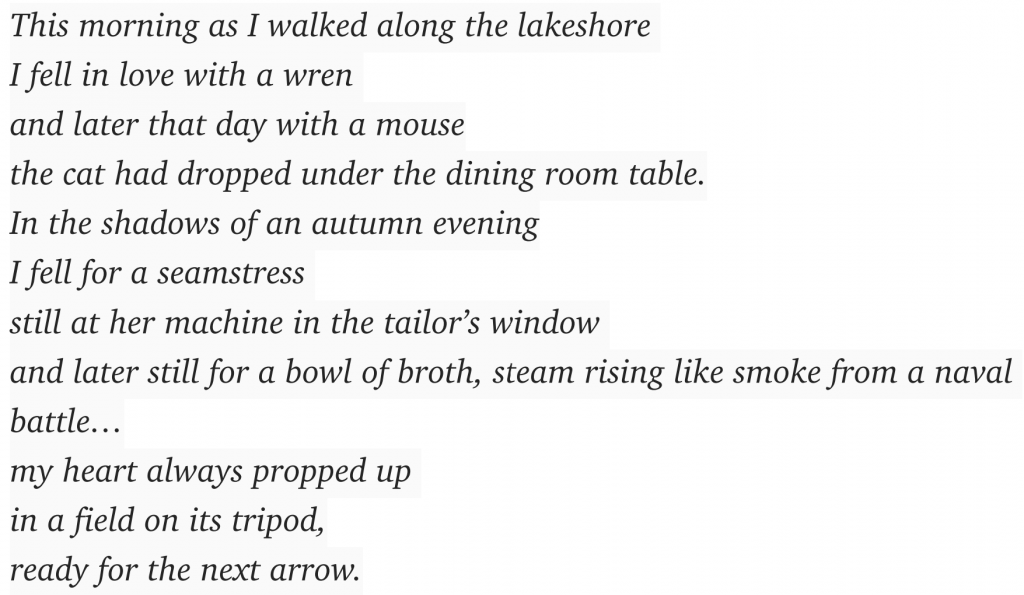After a well celebrated Easter, many of us hope that we will lightly and also seriously surrender into awareness of our deep oneness with everyone and everything.
Billy Collins poem, Aimless Love, playfully dances us into possible scenes of transformed awareness:

Billy Collins’ poem reminds us of how joyful it is to join in the lives of fellow living creatures and even of things. We feel that creation needs our love at this time. Brian Swimme and other Cosmologists tell us that there seems to be evidence that the universe must have known we were coming. We dare to hope that we each were created with something needed at this particular time. We hope we have what it takes to see and respond to the signs of our times.
We know that we humans are able to imagine ourselves inside the lives of other humans in both their joys and their sorrows. Among the signs of our times are great joy as we come out of isolation because of the pandemic. Other signs of our times are suffering from famine, war, soil and water degradation, mental illness and so much more that is dangerous to, as Thomas Berry put it, “our made of earth community.”
This Spring I read two very clear and beautiful books by Albert Nowlan. In his most recent book, Jesus Today, Nowlan recognizes the widespread acute need and awareness of people’s need for spirituality. In Jesus Today, and also in his previous book, Jesus before Christianity, Nowlan convincingly makes the case that everything Jesus did was motivated by his compassion for people. Furthermore, Nowlan points out that, as compassion demands, Jesus thought of and responded to people as individuals rather than as groups or tribes of people.
Albert Nolan is a Dominican priest from South Africa who played a part in the church’s struggle against apartheid. Both these books which I read are helpful for anyone addressing the signs of a particular time. His focus is on the question of what can be done about the daily suffering of people. He says that Jesus was willing to die for his own conviction that individuals are precious and that, if we look at Jesus with open minds from the perspective of our present time, we will be at a good starting point for addressing the suffering of our time. Nolan addresses the urgent reality of our present situation.
Both books are as clear as a bell. They are fruit of Nowlan’s lifetime studies of Jesus’ deep communion with God and God’s creation. I hope we are able to advance our own deeper communion with God in oneness. We are working on this together.

Recent Comments